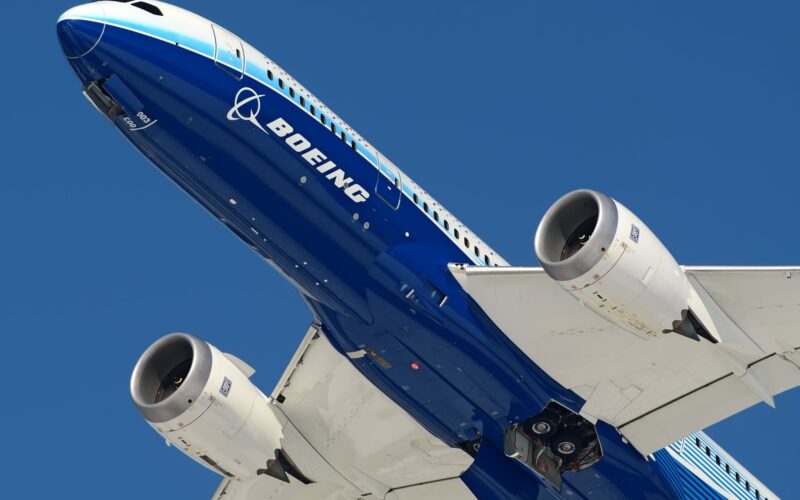Boeing forecasts a surge in the Middle East’s commercial aircraft fleet, projecting a more than twofold increase by 2042. The aviation giant predicts an extensive demand for around 3,025 new jets in the region over the next two decades. Of the total, roughly 1,570 are expected to be narrow-body planes, and at least 1,350 will be wide-body aircraft, the manufacturer estimates.
Boeing’s Commercial Market Outlook (CMO), released by the plane maker on November 12, ahead of the Dubai Airshow, predicts a significant growth in the wide-body segment. The report states that over the next two decades, wide-body aircraft deliveries will account for 45% of all deliveries to the Middle East.
In the meantime, the narrow-body fleet in the region is also expected to more than double “[…] as low-cost carriers (LCCs) and short-haul networks continue to develop and expand,” the CMO reads. Boeing envisions that nearly half of the total Middle East fleet will consist of narrow-body jets by 2042.
The company outlines that the freighter fleet in the region is projected to reach 180 aircraft. Of these, two-thirds will contribute to the growth of air traffic and cargo, while the remaining one-third is anticipated to replace older, less fuel-efficient jets.
“Many airlines in the region provide service between major population centers in Asia, Africa, and Europe via growing hubs that offer efficient connectivity. As a result, a higher proportion of widebody aircraft are needed to carry larger passenger volumes,” the outlook reads.
According to Darren Hulst, the Vice President of Commercial Marketing at Boeing, airlines operating in the Middle East are progressively extending their influence, transforming the region into a key international air transit hub.
“Air travel and cargo demand continue to gain momentum, driven by significant economic growth and national development plans. As airlines in the region will require efficient and versatile fleet solutions, Boeing products will be ready to meet market demands,” Hulst says.
The expected Middle East fleet growth should generate a demand of approximately $335 billion in aviation services, including aircraft maintenance, repair, training, and spare parts supply services.

